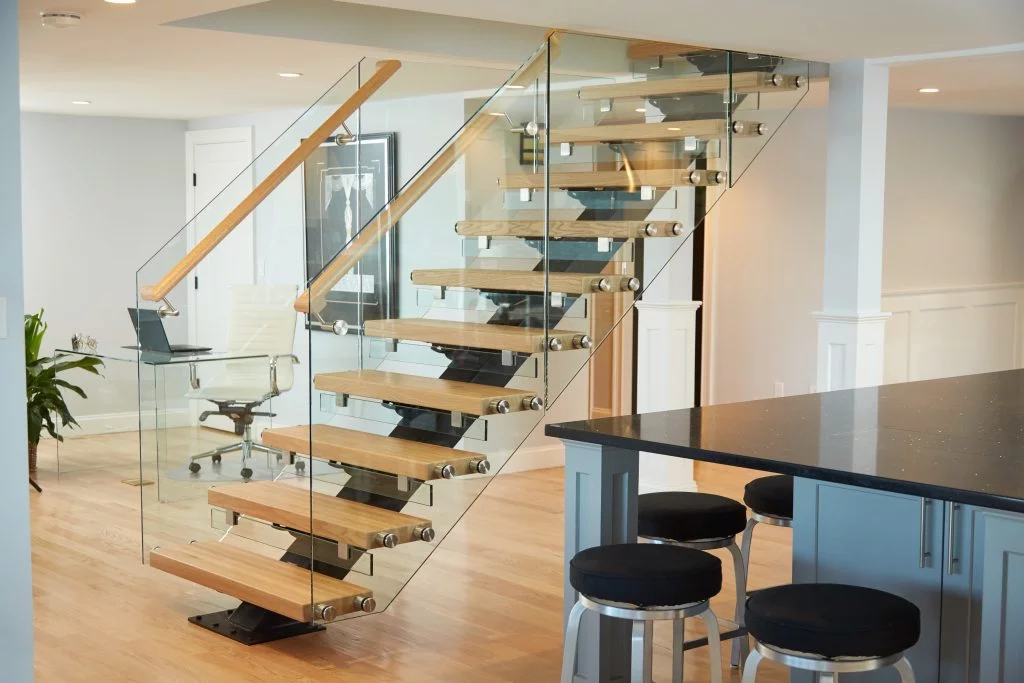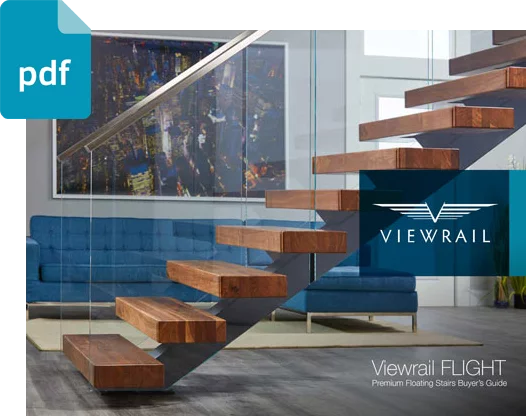How You Can Build Floating Stairs
Building Floating stairs is tough

Floating stairs are often a beautiful feat of architecture. The support systems are hidden and it becomes a stunning piece of art for the home. However, building floating stairs can be an architectural nightmare.
Large metal beams are cumbersome to lift and attach. Welding is time consuming and will never finish on the first day. Not to mention that the measurements must be extra precise for every single attachment point, and all of these matters are happening before considering building code.
Unless you’re an architect, engineer, and metal fabricator, the chances of building a floating staircase on your own is slim. There are substitute options, of course, that could bandaid your problems, but those are not guaranteed to meet code and may actually be pretty ugly.
Different styles of Modern Staircases
Here are some different floating staircase designs that might help you to build floating stairs:
Spiral Staircases
Spiral Staircases are probably the cheapest option, but offer the least “floating stair” look. Technically, they do “float”, but They also hardly take up any space, which may detract from the attention catching capability of a full floating staircase.
The Metal Stringer Staircase
The steel stair stringers are a common floating stair that can really vary in look. Small metal stringers like this one from Lowes, or robust metal stringers like ours here show the real variance in metal stringers.
Good engineering is what separates the cheaper models to the more expensive. In order to provide the best modern look for your home, engineers have to create a system that balances reduction and support. When done correctly the metal stringer staircase can look unbelievable. However, while the lower end may meet the need, it rarely gives you the modern look you want.
Cantilever stairs
Cantilever stairs are one of the purest forms of floating stair. There’s no visible support to the stair system because the support hides in the wall on one side. The trick is that the metal stringer, instead of being on the outside, installs into the wall. Then, special tread brackets are attach to the hidden stringer. These can look beautiful, but, as you probably guessed, they are nearly impossible to build on your own. Now, if this is the look you want then check out someone like eestairs. They fabricate high quality cantilever stairs, but good engineering comes with a hefty price tag.
Other Modern Staircases
Other modern staircases can be astronomically expensive because they are so custom. Usually the more elaborate, the more custom they need to be (which means a whole lot more engineering). If you’re really looking for something like this then we recommend you find a place local to you, otherwise it will be too hands-on to work with someone online.
How you can build floating stairs
If you’re really planning on building the staircase completely on your own, and want to meet code, here are the relevant articles for you to do so:
- 4” sphere code
- Stair Handrail Guidelines
- Staircase Rise & Run Guidelines
- Weight Guidelines for stairs – this one is a little complicated, essentially every step needs to support roughly 400 lbs of weight
However, if you’re just looking for someone to help you build the floating stair project you want, then you should know that we faithfully meet code with every staircase.
The Building Process
Our goal is to have you be the project “foreman” for your home. You provide us with the simple measurements, you provide us with the stair design style, and you install your own staircase. Everything begins and ends with you (we simply create it and send it to you)!
The first step is gathering your measurements which is quite simple:
- You’ll need to measure the floor to floor height (the bottom floor to the next level)
- The full length of the staircase (the horizontal distance of the floating staircase)
- You’ll need to measure the actual thickness of the top level
- If there is a ceiling then there will need to be extra measuring
- The last step to measuring is letting us know what your floor materials are: wood, concrete, metal, etc. (this is a very important step).
For more information on floating stair measurements
After the measuring is completed, then your engineering team will create a “CAD” drawing of the project and discuss with you to ensure that the stair design is right.
Following the final tech review, the floating staircase is put into production and built for your home (This process usually takes around 6 weeks).
Once the stringer, tread brackets, and stair treads are completed, we send you your floating staircase ready to install. Important note: typically the metal tubing only weighs 300 lbs, meaning that it will only take a few people to carry it off the truck.
And that’s it, you have built your own floating staircase!
